Author: everbella
A Healthy Cinnamon Roll Recipe to Satisfy Your Sweet Tooth
Looking for a delicious and healthy way to satisfy your sweet tooth? Look no further than this amazing cinnamon roll recipe!
These rolls are made with whole wheat flour, honey, and cinnamon, making them a healthier alternative to traditional cinnamon rolls. They are also vegan and gluten-free, so they are perfect for anyone with dietary restrictions.
Give this recipe a try today and you will not be disappointed!
*For any of the vegan ingredients, feel free to use a non-dairy option if you’d prefer! Same goes with the gluten-free flour – you can go ahead and use the same amount of all-purpose flour.
YIELD: 8 LARGE CINNAMON ROLLS
Here’s what you’ll need:
For The Cinnamon Rolls
- 1 packet of active dry rapid rise yeast (2 1/4 teaspoons or 11 mL)
- 1 cup warm non dairy milk
- 3 tablespoons granulated sugar
- 1/4 cup vegan butter, melted
- 1/4 teaspoon salt
- 2 1/2 cups gluten free flour (I recommend Bob’s 1:1 Baking Flour)
For The Filling
- 1/3 cup brown sugar
- 2 Tablespoons ground cinnamon
- 4 tablespoons vegan butter, room temperature
For The Vegan Cream Cheese Frosting (Optional)
- 1 1/2 cups powdered sugar
- 2 tablespoons vegan cream cheese
- 2 tablespoons vegan butter, room temperature
- 1 teaspoon vanilla extract
- Pinch of salt
- 1 1/2 tablespoons non dairy milk
Here’s what you’ll need to do:
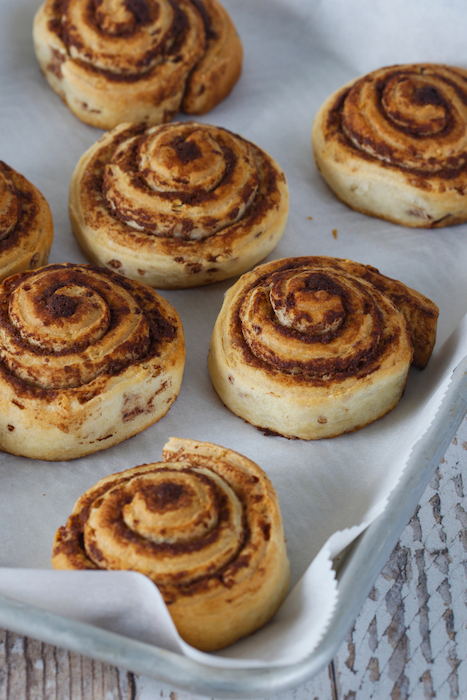
- Combine the milk, sugar, and yeast in a stand mixer fitted with the dough hook. Allow to sit for 5 minutes. The mixture should foam, signaling that the yeast is active.
- Add the melted butter and 1 cup of the gluten-free flour and the salt. Mix until just combined. Add in remaining flour and mix until the dough forms a ball and comes together. Turn the dough out onto a heavily floured surface and knead for 15 minutes or until the dough is mostly smooth.
- Coat a large bowl with oil and place the dough into the bowl. Cover with plastic wrap and set in a warm area to proof for one hour.
- In a small bowl, combine the brown sugar and cinnamon for the filling. Lightly grease a 9 inch round baking pan. Set both aside.
- After the one hour, look at the dough. The dough should be about doubled in size. Turn the dough out onto a floured work surface. Roll the dough out into a 9×13 inch rectangle. The dough will be thick. This is what you want. Spread the melted butter over the dough, coating it evenly, all the way to the edge. Sprinkle on the brown sugar/cinnamon mixture and rub into the butter to combine.
- Working from the long edge, roll the dough into a log, pinching the ends so it stays together. Using a serrated knife, cut the dough into 8 equal buns. Place into the prepared pan.
- Allow the dough to rise a second time. Cover the pan with a cloth and let it rest in a warm place for another hour.
- Preheat the oven to 375°F. Bake for 20-30 minutes, until the cinnamon buns are golden brown on top.
- While the cinnamon rolls are baking, make the cream cheese frosting. Combine all frosting ingredients in a bowl and whisk until combined. (Optional).
- Once the cinnamon rolls are out of the oven, cool for 10 minutes. Microwave the frosting for 10-15 seconds to thin it out slightly, then spread over warm cinnamon rolls and serve!
Want an even healthier way to satisfy that cinnamon roll craving?
Okay, I’ll admit – while the above recipe will yield YUMMY cinnamon buns that are healthier than your average rolls, it’s going to take a bit of work.
If you’re looking for an even easier way to satisfy that cinnamon roll craving, I’ve got what you need.
Not only does it taste exactly like a delicious cinnamon roll, Complete Biotin Plus gives you the biotin you need to support your systems and boost your hair growth!
Plus it contains FOUR other essential compounds that greatly benefit your health.
Can you guess what they are?
How To Take Care Of Your Lungs: 9 Tips For Optimizing Lung Health
Your lungs are one of the most important organs in your body. They are responsible for getting oxygen into your bloodstream and removing carbon dioxide. If your lungs aren’t healthy, it can be difficult to breathe and you may feel tired all the time. In this article, I’ll discuss nine tips for optimizing lung health and taking care of your lungs!
The importance of your lungs
The lungs are one of the most important organs in the human body. Obviously, without them, you couldn’t breathe, and then, well…
But there’s more to them than that!
Your lungs are responsible for taking in oxygen and exhaling carbon dioxide. This process is essential for maintaining a healthy body and mind. Without oxygen, our cells would not be able to function properly and we would quickly become exhausted.
The lungs also help regulate blood pressure and keep the heart beating, making them essential for the circulatory system. Additionally, the lungs work with the immune system to protect the body from harmful microbes.
In short, the lungs play a vital role in keeping the body functioning properly. Without them in proper health, we would quickly succumb to illness or injury.
So how do we best take care of them?
Well, keep reading to find out!
Tips for healthier lungs
1. Exercise
Most people know that exercising is good for their heart and muscles, but did you know that it can also support lung health?
When you exercise, your breathing rate increases and your body takes in more oxygen. As a result, your lungs have to work harder, which helps to keep them strong and healthy. In addition, regular exercise helps clear out mucus and other respiratory secretions, keeping
your airways clear. And finally, exercise can help improve your overall cardiovascular fitness, which can also benefit your lungs.
So if you’re looking for a way to support lung health, there’s no need to look any further than your local gym. Just remember to start slowly and build up gradually to avoid over-stressing your lungs.
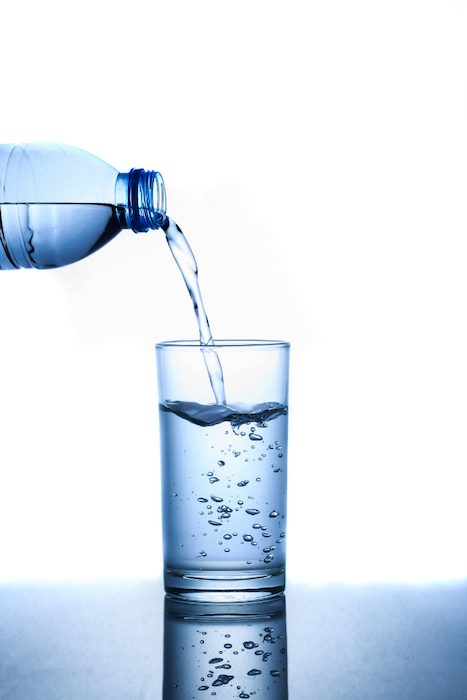
2. Drink lots of water!
Most people know that it’s important to stay hydrated, but did you know that drinking plenty of water can also support lung health?
Water is essential for many of the body’s functions, including keeping the mucous membranes in the lungs moist. These membranes line the passageways in the lungs and help trap dust, bacteria, and other harmful particles. If they become too dry, they can crack and allow these particles to enter the lungs, which can lead to infection. Drinking water helps to keep the mucous membranes healthy and moist, making it easier for the lungs to do their job. In addition, water helps thin mucus so that it can be more easily expelled from the lungs.
Next time you reach for a glass of water, remember that you’re not just quenching your thirst – you’re also helping your lungs stay healthy and function at their best.
3. Eat foods high in antioxidants
Antioxidants are important for lung health because they help protect cells from damage. The lungs are constantly exposed to damaging agents, such as pollutants and cigarette smoke. These agents can cause oxidative stress, which leads to cell death. Antioxidants help to neutralize these harmful agents, preventing them from causing damage.
Studies have shown that antioxidants can help improve lung function and reduce the risk of lung diseases. Furthermore, antioxidants play an important role in maintaining the elasticity of the lungs and reducing inflammation. Consequently, it is important to include foods high in antioxidants in your diet in order to support lung health.
4. Keep your home clean and as dust-free as possible
Dust is not just a nuisance – it can also be harmful to your health.
Dust particles are small enough to enter your lungs, and once they’re inhaled, they can cause irritation and inflammation. In some cases, this can lead to respiratory problems such as asthma or bronchitis.
In addition, dust can also hold harmful toxins that can damage your lungs and other organs. Therefore, it’s important to take precautions to avoid breathing in dust, especially if you’re working in a dusty environment. By being mindful about your dust exposure, you can help keep your lungs healthy and free from harmful dust particles.
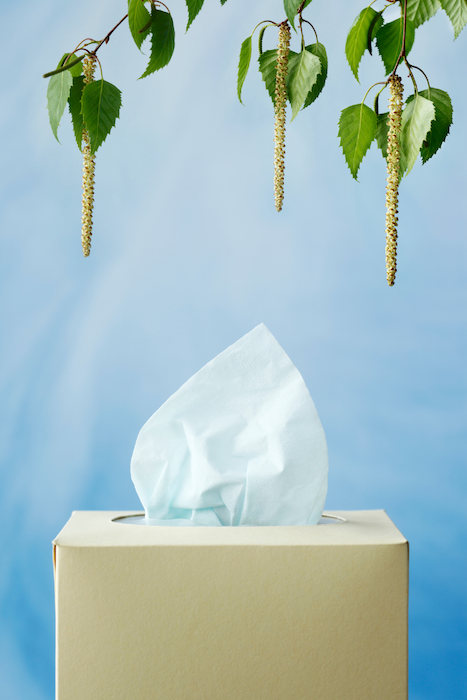
5. If you have allergies, manage them properly
Allergies are a common problem that can cause a variety of symptoms, including sneezing, congestion, and itchy eyes. While these symptoms may be annoying, they are usually not harmful.
However, allergies can also take a toll on your lungs. Allergies can cause asthma attacks and make it difficult to breathe. In severe cases, they can even lead to pneumonia. Some research has also linked allergies to an increased risk of lung cancer. Therefore, it is important to be aware of the potential risks of allergies and take steps to protect your lungs. One way to do this is to avoid triggers like dust, pollen, and smoke. If you find your lungs are consistently bothered, it’s important to find ways to manage your allergies and reduce the risks to your lungs.
6. Quit smoking if you do smoke
Smoking is one of the leading preventable causes of death worldwide, and it is well-known that it harms the lungs.
The chemicals in tobacco smoke damage the cells that line the airways, causing inflammation and making it difficult to breathe. Over time, this damage can lead to serious lung conditions such as emphysema and bronchitis. In addition, smoking increases the likelihood of developing lung cancer.
The good news is that it is never too late to quit smoking and improve your lung health. Within a few months of quitting, your lungs will begin to repair themselves, and you will start to feel the difference.
So if you’re looking to improve your lung health, quitting smoking is one of the best things you can do.
7. Avoid air pollution as much as possible
Air pollution isn’t just bad for the environment, it’s also bad for your health.
Studies have shown that air pollution can cause a variety of respiratory problems, including bronchitis, asthma, and even lung cancer. The particles in polluted air can irritate your lungs and make it difficult to breathe. In addition, the chemicals in air pollution can damage your lung tissues and cause inflammation.
If you already have a respiratory condition, air pollution can make it worse. It’s important to protect your lungs by avoiding areas with high levels of air pollution.
8. Try to reduce stress in your life
Stress is a part of everyone’s life, but it can be especially harmful to your lungs.
When you’re stressed, your body releases a hormone called cortisol. Cortisol constricts your blood vessels and makes it harder for oxygen to reach your cells. This can lead to inflammation and fluid retention in the lungs, as well as difficulty breathing. In addition, stress can make asthma and other lung conditions worse.
If you’re struggling to manage your stress, there are a few things you can do to help. Exercise is a great way to relieve stress, and it also helps to improve lung function. Deep breathing exercises can also be helpful in relaxing the body and promoting better airflow.
By taking steps to reduce stress, you can help keep your lungs healthy and free from harm.
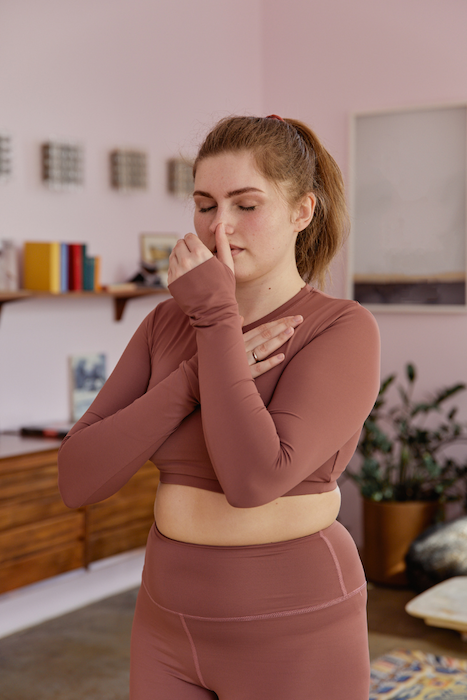
9. Do breathing exercises
Since we breathe automatically, without giving it a lot of thought, most people take breathing for granted. However, the quality of our breath can have a big impact on our overall health.
Proper breathing helps to oxygenate the blood and deliver nutrients to the cells. It also helps remove toxins from the body and promote relaxation. For people with lung conditions, learning how to breathe correctly can be an essential part of managing their condition.
There are a number of different breathing exercises that can help support lung health. Pursed-lip breathing, for example, can help slow down the breathing rate and make it easier to breathe out. Diaphragmatic breathing, meanwhile, helps to improve the efficiency of the lungs by encouraging full inhalation and exhalation.
Practicing these exercises regularly can help to improve lung function and reduce the severity of symptoms.
These are just a few tips to help you keep your lungs healthy and optimize your lung health! And remember – take care of your lungs and they’ll take care of you!
Speaking of…
Remember when I said that it’s important to take in antioxidants? Well, what if you could take in the MASTER antioxidant in a highly absorbable form?
That way, every part of your body – like the lungs – could use it effectively.
Well, with Purality Health’s Micelle Liposomal Glutathione, you can.
Research has found that low glutathione levels are associated with poor lung health. And unfortunately, our glutathione levels naturally deplete as we age.
Don’t fall behind on glutathione levels.
Low glutathione levels is honestly such a HUGE aspect of what ages us.
I think you’ll be shocked to see just how much it affects us after you read this article put together by our friends over at Purality Health.
8 Ways to Boost Your Mood
Feeling down? Don’t worry, I’ve got you covered!
In this article, I’ll discuss eight ways to boost your mood instantly. Whether you are feeling stressed out, anxious, or just plain sad, these tips can help you feel better in no time!
But first, you’re going to hear a bit about endorphins, serotonin, and cortisol in this article.
So let’s take a moment to cover what those are!
The importance of endorphins
Endorphins are hormones that are released in response to pain or stress. They are often referred to as the “feel-good” hormones because they produce a sense of well-being and euphoria. Endorphins also help to reduce anxiety and promote positive social interactions.
In addition, endorphins have been shown to boost immunity, relieve pain, and increase energy levels. Given all of these benefits, it’s no wonder that endorphins are often referred to as the body’s natural “happy pills.”
So next time you’re feeling stressed or down, remember that your body is capable of producing its own happiness-inducing hormone. Just let those endorphins flow!
The importance of serotonin
You may not know it, but serotonin plays a vital role in your daily life. This essential neurotransmitter helps to regulate mood, appetite and sleep, and it also plays a role in memory and learning.
When levels of serotonin are low, it can lead to feelings of depression and anxiety. Serotonin is produced in the brain and gut, and it is also found in foods like chocolate, nuts and eggs.
While you can’t directly increase your serotonin levels, there are things you can do to help boost production, such as exercising, meditating, and spending time outdoors.
By taking care of yourself and making sure you get enough of this important neurotransmitter, you can help improve your overall well-being.
The dangers of cortisol
If you’ve ever been stressed, you’re probably familiar with the hormone cortisol. Often called the “stress hormone,” cortisol is released in response to stress and helps to regulate various body systems.
However, cortisol can also have negative effects on the body when it’s present in high levels. Chronic stress can lead to elevated cortisol levels, which can in turn contribute to weight gain, anxiety, and a weakened immune system. In severe cases, it can even lead to heart disease and depression.
Luckily, there are some simple ways to reduce cortisol levels and minimize the negative effects of stress. Exercise, relaxation techniques, and a healthy diet can all help to keep cortisol levels in check and allow your body to function at its best.
Now, without further ado, here are the best ways to boost your mood:
8 things you can do to boost mood
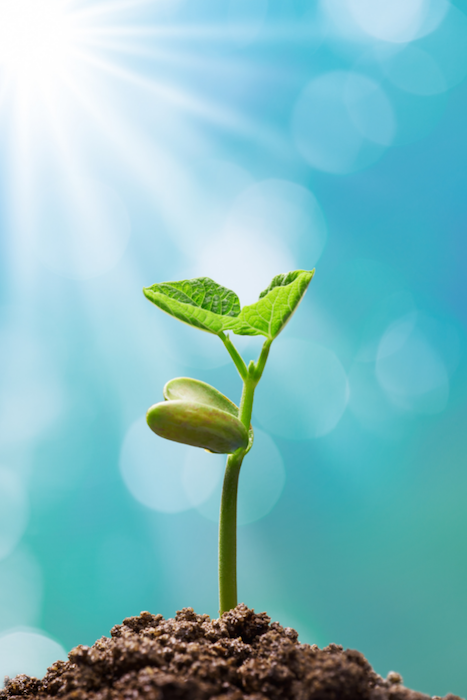
1. Get some sunlight
Sunshine is more than just a nice weather forecast. Getting some natural light each day can help improve your mood and mental health.
Sunlight helps your body produce vitamin D, which is essential for healthy bones and immune function. But vitamin D isn’t the only reason why sunshine makes you feel good. Sunlight also helps to regulate the body’s natural sleep cycle and can lift your spirits by boosting levels of serotonin.
So next time you’re feeling down, try getting some sunshine. A little bit of light can go a long way towards brightening your day.
2. Exercise
Exercise isn’t just good for your physical health – it can also have a positive impact on your mental well-being.
When you exercise, your body releases endorphins, along with the levels of serotonin in your brain, improving mood.
Exercise is also a great way to distract yourself from negative thoughts and feelings. When you’re focused on working out, you’re not as likely to dwell on negative thoughts and emotions. Exercise can provide an outlet for stress and help to boost your mood.
3. Spend time with friends and family
Spending time with loved ones is one of the best ways to improve your mood. Whether you’re sharing a meal, enjoying a shared activity, or simply spending time talking, being with those you care about can help chase away the blues.
One reason why spending time with friends and family is so effective at boosting your mood is that it gives you a chance to relax and feel supported. In our busy lives, it’s easy to get caught up in the hustle and bustle and forget to take time for ourselves. When we’re with people we care about, we can let down our guard and relax into the moment.
We also feel supported by the people around us, which can help us weather life’s ups and downs. So next time you’re feeling down, give your loved ones a call – you might just find your mood lifting in no time.
4. Take a break
When you’re feeling stressed or overwhelmed, it can be tempting to just keep going and power through. However, research shows that taking a break can actually be beneficial for your mood and productivity.
Taking a few minutes to step away from your work can help refresh your mind and give you a new perspective. Additionally, spending time on activities that you enjoy can help reduce stress levels and improve your overall mood. If you’re feeling bogged down, don’t be afraid to take a break. It just might be exactly what you need to get back on track.

5. Spend time outside in nature
We all know that spending time in nature can be refreshing and relaxing. But did you know that it can also boost your mood?
Numerous studies have shown that spending time in nature can help alleviate symptoms of anxiety and depression. One reason for this is that nature can provide a much-needed sense of calm and perspective. When we’re feeling overwhelmed by life, spending time in nature can help us remember what’s really important.
Additionally, exposure to sunlight can improve our mood by increasing levels of serotonin.
So next time you’re feeling down, take a walk in the park or spend some time in your garden. You may just find that a little time in nature is all you need to boost your mood.
6. Listen to music that makes you happy or upbeat
There’s a reason why we instinctively turn to music when we’re feeling down. Studies have shown that listening to happy music can increase positive feelings and decrease negative emotions. It can also lead to increased levels of happiness, optimism, and energy. When you’re feeling low, try putting on your favorite tune and letting the power of music work its magic. You’ll be feeling better in no time!
7. Watch a funny movie or TV show
Laughing feels good – that’s why we do it! But it turns out that laughter has some pretty amazing benefits for our overall well-being.
When we laugh, our bodies release endorphins. Laughing also lowers levels of stress hormones like cortisol, and it can increase immunity by protecting against disease-causing inflammation. In fact, one study found that people who laughed regularly were actually less likely to develop heart disease!
So try watching a funny movie or hanging out with friends next time you’re feeling down – your body will thank you for it!
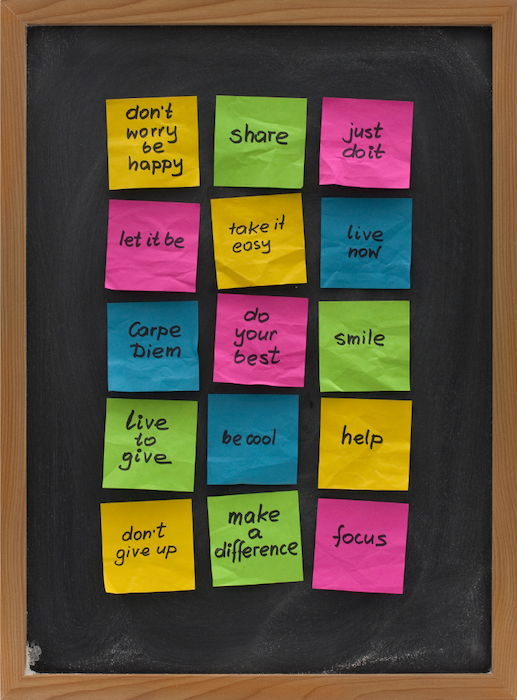
8. Read something that is positive or uplifting
It’s no secret that reading can be good for your mental health. In addition to providing a much-needed break from the stresses of daily life, reading can also boost your mood and help you to feel more positive. This is because reading allows you to escape from your own thoughts and problems, and to immerse yourself in another world.
When you read about someone else’s hardships or triumphs, it can help you to put your own problems into perspective. And when you read about acts of kindness or other feel-good stories, it can help raise your spirits and give you a much-needed dose of optimism. So next time you’re feeling down, try reaching for a book instead of your phone. Chances are, you’ll be glad you did.
One other thing that can help…
If you find you’re often in a not-so-great mood, you don’t fully know why, and none of these things help, it could come down to nutrition.
Remember when we talked about cortisol and how it can negatively impact your health? Well, as it turns out, vitamin C actually helps regulate this stress hormone.
Research has found that high vitamin C levels are attributed to an improved stress response. People who have high levels of vitamin C in their body don’t show the expected physical and mental signs of stress when confronted with a demanding situation. They also bounce back from stressful circumstances better than those with low levels of vitamin C. [1]
One German study looked at participants faced with a public speaking event. Half were given a large dose of vitamin C before their speaking engagement and half were not. The half that received the vitamin C had less stress hormones in their blood following the event than those who did not take the vitamin. They also had lower blood pressure and reported feeling less stressed. [1]
Research shows that vitamin C helps manage the body’s use of cortisol. Though it has served us throughout our earlier years as humans, today cortisol is often produced when not needed – but the body doesn’t know that. This can lead to a constant state of stress in the body, which wears you down.
And here’s the thing…
I don’t want you to be stressed!
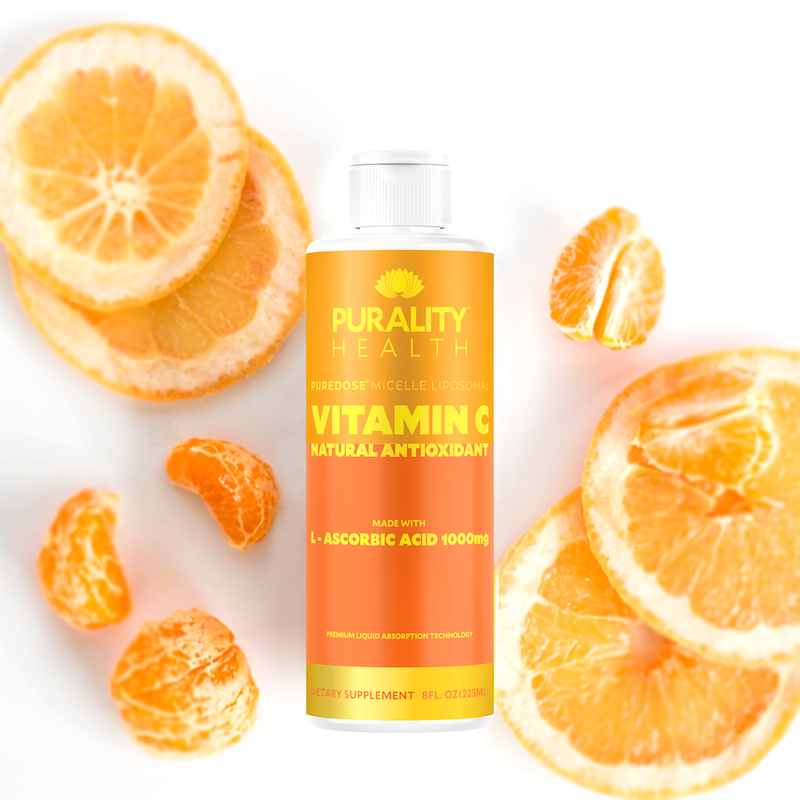
I want you to be as happy and healthy as possible!
That’s why I worked out a deal with my friends over at Purality Health to save you up to 25% on their delicious, highly absorbable vitamin C.
PLUS you can try it risk free for 180-days!
>>> Click here to see ingredients, reviews, and to take advantage of this generous offer!
18 Health Hacks That Actually Work
There are a lot of health hacks out there on the internet. A lot of them don’t work, and some of them are just plain dangerous. So, how do you know which ones to trust?
Well, usually if it sounds too good to be true – it is. Good health does take some work, but once you get into the groove of things and begin seeing the results, I think you’ll start to really enjoy what once looked like a chore.
In this blog post, I’ll go over 18 health hacks that actually work! Plus, I’ll include why they’re so important so that you can be motivated to get started right away!
So, without further ado…
18 Health Hacks That Actually Work
Okay, maybe these aren’t true “hacks”. I mean, you’ve likely heard them before and some of them are easier said than done. But I want to remind you of the importance of taking the tried and true advice of managing your health in these ways.
So whether you try all of them or one of them, just know they’re making a big impact!
Hack #01: Eat More Fiber
Most people know that it’s important to eat a healthy diet, but they may not be aware of the importance of fiber.
Fiber is a type of carbohydrate that the body cannot digest, and it is found in plant-based foods such as fruits, vegetables, and whole grains. Though it may seem like something that would just pass through the body, fiber actually has a number of important health benefits.
Fiber helps keep the digestive system healthy by promoting regular bowel movements and preventing constipation. It can also help lower cholesterol levels and reduce the risk of heart disease.
In addition, fiber helps keep you feeling full after eating, making it an important tool for weight loss and weight management. So next time you’re looking for healthy food to add to your diet, make sure to include plenty of fiber-rich options.
Hack #02: Drink More Water
Water is essential for life, and that includes human life. Every cell in the body needs water to function properly, and that’s why it’s important to make sure you’re drinking enough water every day.
Drinking adequate amounts of water helps keep your energy levels up, your skin looking healthy, your digestion moving smoothly, and your whole body functioning at its best. Plus, drinking plenty of water is a great way to prevent headaches and other illnesses.
So next time you reach for a snack or a cup of coffee, think about reaching for a glass of water instead. Your body will thank you for it!
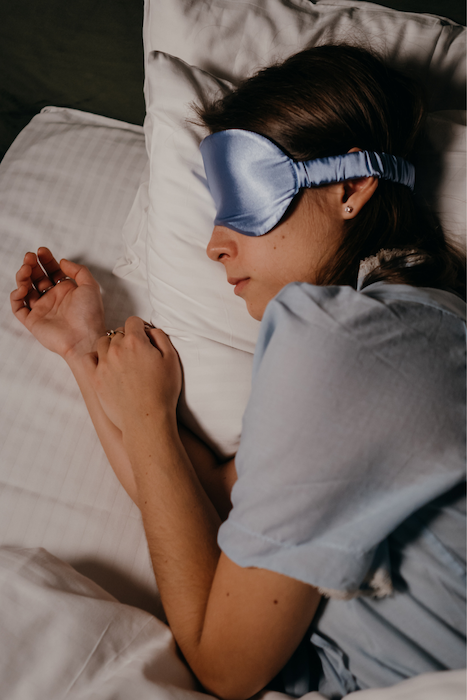
Hack #03: Get Enough Sleep
Most people know that getting a good night’s sleep is important for overall health, but few realize just how essential sleep is for maintaining physical and mental well-being.
When we sleep, our bodies are able to recover from the day’s activities and repair any damage that has been done. This process is essential for promoting tissue growth and keeping our immune system strong.
In addition, sleep helps to regulate hormones and metabolism, which can impact everything from energy levels to weight. Furthermore, research has shown that sleep deprivation can lead to mood swings, irritability, and even depression.
Hack #04: Exercise Regularly
Exercise helps improve cardiovascular health, boost energy levels, and improve flexibility and balance. Additionally, regular exercise has been shown to reduce the risk of chronic diseases such as obesity, heart disease, stroke, and type 2 diabetes. It can also help to improve mental health, easing symptoms of anxiety and depression.
Whatever your fitness goals may be, remember that exercise isn’t just good for your body – it’s also good for your mind and your overall health.
Hack #05: Eat More Protein
Protein is an essential part of a healthy diet, but do you know why?
Protein is important for your health because it helps your body repair and build new tissue, produces enzymes and hormones, and provides a source of energy. Without protein, your body wouldn’t be able to function properly. When you eat protein, your body breaks it down into amino acids, which are then used to build new muscle tissue, repair damaged cells, and produce enzymes and hormones.
Eating protein also helps regulate blood sugar levels and provides a slow release of energy, which is ideal for long-lasting energy production.
Hack #06: Cut Back on Sugar
Sugar is often seen as a healthy indulgence, but the truth is that it can have serious consequences for your health.
Consuming too much sugar can lead to weight gain, type 2 diabetes, and heart disease. It can also cause inflammation throughout the body, which can contribute to a variety of health problems.
For these reasons, it’s important to cut back on sugar if you want to stay healthy. There are a number of ways to do this, such as choosing foods that are lower in sugar, eating more whole foods, and limiting processed foods. You can also add more sweetness to your diet with natural sweeteners like honey or maple syrup.
By making these simple changes, you can drastically improve your health and well-being.
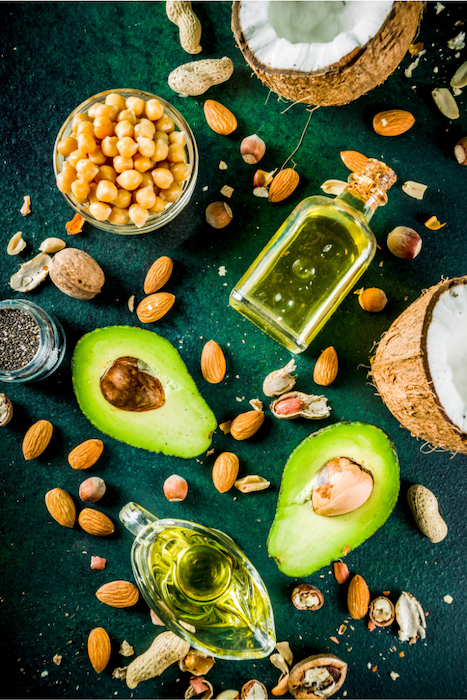
Hack #07: Eat More Healthy Fats
Many people mistakenly believe that all fats are bad for their health. However, there are actually two different types of fats: healthy fats and unhealthy fats.
Unhealthy fats, such as trans fats and saturated fats, can raise your cholesterol levels and increase your risk of heart disease.
On the other hand, healthy fats, such as unsaturated fats and omega-3 fatty acids, can actually improve your cardiovascular health.
In addition, healthy fats play an important role in brain development and help protect against memory decline. If you’re looking to improve your overall health, be sure to include healthy fats in your diet.
Hack #08: Avoid Processed Foods
It’s no secret that processed foods are bad for your health. They’re often high in sugar, salt, and unhealthy fats, and they can contain harmful chemicals and additives. Eating a diet full of processed foods can lead to weight gain, heart disease, and other serious health problems.
So why are processed foods so bad for you? One reason is that they tend to be high in calories but low in nutrients. This means that you’re getting a lot of empty calories from processed foods, which can lead to weight gain. Processed foods are also often high in sugar, which can cause blood sugar spikes and contribute to diabetes. And since they’re often high in salt, eating a lot of processed foods can lead to high blood pressure.
Eating a healthy diet is one of the best things you can do for your health. By avoiding processed foods, you can help keep your weight down, avoid diseases like heart disease and diabetes, and feel your best!
Hack #09: Get Enough Vitamin D
Vitamin D is essential for good health, but many people don’t get enough of it. This important vitamin helps regulate the absorption of calcium and phosphorus, two minerals that are essential for strong bones. Vitamin D also plays a role in immunity, and recent research has found that it may help to prevent certain types of disease.
While you can get vitamin D from foods like eggs and fatty fish, the best way to get enough is by supplementing. Even though you can get vitamin D from the sun, you’re putting your skin at risk at the same time. Too much sun exposure without sunscreen can drastically increase how fast your skin ages. It can also break down your collagen levels.
Protect your skin and get enough vitamin D with a reliable supplement that your body can actually absorb.
My friends over at Purality Health offer a vitamin D that can do just that. It also contains the one thing you need to make sure you’re taking with vitamin D if you want to avoid heart issues.
Hack #10: Avoid Alcohol
Most people are aware of the dangers of drinking to excess, but many don’t realize that even moderate drinking can have a negative impact on health.
Alcohol is a toxin that puts stress on the liver, kidneys and other organs. It can also contribute to weight gain, high blood pressure, and other health problems. For these reasons, it’s important to avoid alcohol or drink only in moderation.
There are also some benefits to be gained from avoiding alcohol. For example, you’ll have more energy, better skin, and improved sleep patterns. You’ll also save money and reduce your risk of developing cancer or other diseases.
So if you’re looking to improve your health, ditch the booze and feel the benefits!
Hack #11: Stand Up More

We all know that sitting down too much isn’t good for our health. But did you know that standing up more can actually have some pretty amazing health benefits?
For starters, standing up helps improve your circulation. When you’re sitting down, your muscles are relatively inactive, which can cause your blood to pool in your lower extremities. This can lead to fatigue, varicose veins, and other circulation problems. However, when you stand up, your muscles contract and help pump blood back up to your heart. This not only prevents circulation problems, but it also gives you more energy.
In addition to improving circulation, standing up also helps strengthen your bones and muscles. When you’re sitting down, there’s very little weight bearing on your bones, which can lead to osteoporosis and other problems. On the other hand, when you stand up, all of your weight is borne by your bones and muscles, which helps to keep them strong and healthy.
Additionally, standing up provides a gentle workout for your muscles, helping to keep them toned and prevent cramping.
So next time you find yourself sitting for too long, remember that it’s important to stand up and move around every so often
Hack #12: Take the Stairs
Taking the stairs may seem like a small thing, but it can have a big impact on your health.
For one thing, it’s great exercise. Just a few minutes of stair-climbing can get your heart pumping and your muscles working. It’s also been shown to boost brain power and improve memory.
Additionally, taking the stairs can help you stay at a healthy weight. And if you’re trying to lose weight, adding some extra stair-climbing to your daily routine can make a big difference.
If you’re faced with a choice between the elevator and the stairs, opt for the stairs and give your health a boost!
Hack #13: Park Farther Away
Most of us are guilty of it – driving right up to the door of our destination, even if there’s a perfectly good spot available a little farther away. But did you know that parking farther away from your destination can actually be good for your health?
Like opting for the stairs, walking even a short distance helps get your blood flowing and can increase your heart rate, making it a great way to add some extra activity to your day. And if you make a habit of parking farther away, you may be surprised at how much extra walking you end up doing over the course of a week or month.
Next time you’re looking for a parking spot, remember that the spot a little farther away just might be the best choice for you.
Hack #14: Drink Green Tea
Green tea is more than just a hot beverage – it’s also a health powerhouse.
Drinking green tea has been linked to a variety of health benefits, including reduced risk of cancer, heart disease, and stroke. Green tea is also a good source of antioxidants, which can help protect cells from damage and reduce inflammation.
In addition, green tea has been shown to boost metabolism and promote weight loss. If you’re looking for a healthy way to improve your overall well-being, be sure to add green tea to your diet.
Hack #15: Eat More Vegetables

Vegetables are an important part of a healthy diet, and there are many good reasons to eat more of them.
For one thing, they are packed with nutrients that are essential for good health. They also tend to be low in calories and fat, making them a great choice for people who are watching their weight.
In addition, vegetables are a good source of fiber, which can help to reduce the risk of heart disease and other chronic conditions.
And last but not least, eating more vegetables can help you cut down on unhealthy processed foods. Aim to eat at least five servings of vegetables per day for maximum benefits!
Hack #16: Eat More Fruit
Fruit is packed with nutrients that are essential for good health. Vitamins A and C, for example, help to keep your immune system strong, while B vitamins are important for energy production.
Fruit is also a great source of fiber, which helps keep your digestive system functioning properly. In addition, eating fruit has been linked with lower rates of heart disease and certain types of cancer.
Need a healthy way to boost your energy levels and protect your overall health? Eating more fruit is a great place to start!
Hack #17: Manage Your Stress
Stress is a normal part of life, and it can actually be beneficial in small doses. It can help us stay alert and motivated. However, chronic stress can take a toll on our physical and mental health.
When we’re under constant stress, our bodies go into “fight or flight” mode, which can lead to a host of problems, including high blood pressure, headaches, and difficulty sleeping.
Stress can also make us more prone to developing anxiety and depression. That’s why it’s so important to find healthy ways to manage your stress. Exercise, relaxation techniques, and spending time with loved ones are just a few of the ways that you can reduce stress levels.
By taking steps to manage your stress, you’ll be taking care of your overall health.
Hack #18: Eat Slowly
When it comes to eating, it’s not just what you eat that matters, but how you eat it.
Eating quickly can lead to overeating, as well as indigestion and other digestive problems. On the other hand, taking the time to savor your food can help you eat less and enjoy your meal more.
According to studies, it takes about 20 minutes for the brain to register that you’re full. If you eat too quickly, you may end up eating more than you need before you realize you’re full.
In addition, eating slowly gives your body time to absorb nutrients more effectively. When you chew your food thoroughly, your body is able to better break down the molecules and absorb the nutrients.
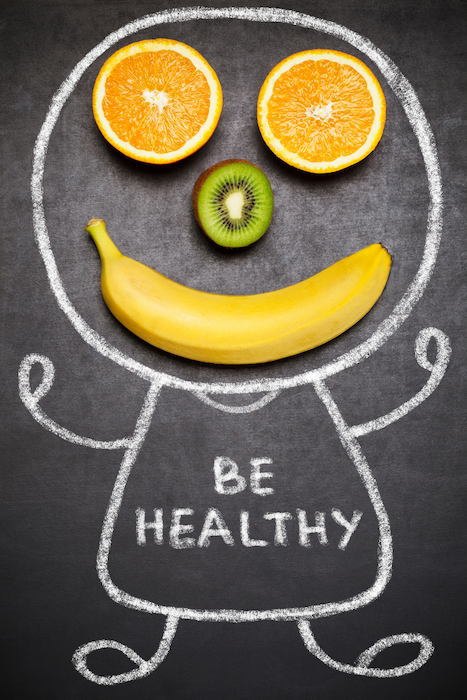
As a result, eating slowly can help you to get more out of your food and improve your overall health. So next time you sit down to eat, take a moment to savor your food and enjoy the experience of eating as well as the nourishment it provides.
These are just a few of the many health hacks that actually work. By following these tips, you can improve your overall health and well-being. So, what are you waiting for? Get started today!
Pumpkin Seeds: 6 Benefits Of Eating This Nutritious Seed
Most people think of pumpkins as nothing more than decorations for Halloween. However, these large orange fruits are actually a nutritional powerhouse. One of the most underrated features of pumpkins is their seeds.
These little seeds are packed with nutrients that offer a variety of health benefits. In this blog post, I’ll cover some of the key benefits of eating pumpkin seeds. I’ll also discuss how to incorporate them into your diet for the best results.
So read on to learn more about this amazing superfood!
1. Pumpkin seeds are a great source of protein
Pumpkin seeds are an excellent source of protein, providing around 7 grams per ounce!
Proteins are essential nutrients for the human body. They are the building blocks of muscle, skin, and other tissues, and they play a vital role in many metabolic processes. Proteins are made up of amino acids, and the body needs a steady supply of these to function properly.
In addition to providing the body with amino acids, proteins also help regulate hormone levels and promote cell growth. They are also involved in the transport of nutrients and other molecules around the body.
As you can see, protein is an important nutrient that plays many vital roles in the human body. So next time you’re looking for a boost, reach for a handful of pumpkin seeds!
2. They’re high in antioxidants
Did you know that pumpkin seeds are high in antioxidants?
Antioxidants are important nutrients that help protect the body from damage caused by free radicals. Free radicals are rogue molecules that can cause cell damage, leading to inflammation and disease.
Pumpkin seeds are a rich source of several different antioxidants, including vitamins A and C, beta-carotene, and lutein. These nutrients work together to neutralize free radicals and protect cells from damage.
So if you want to offer your body some protection, consider snacking on some pumpkin seeds!
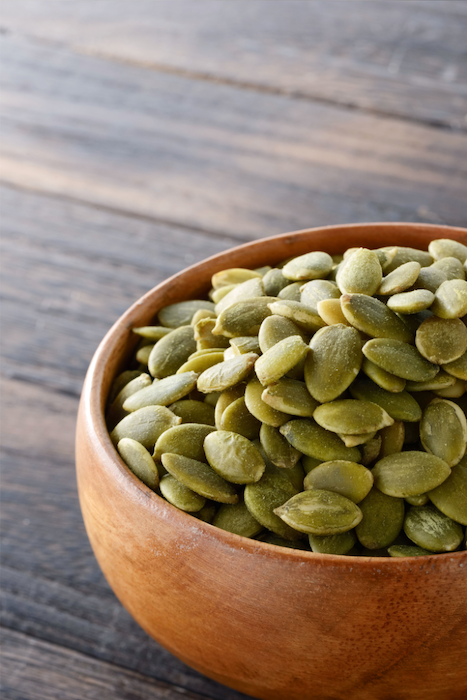
3. Pumpkin seeds are anti-inflammatory
Pumpkin seeds are a nutrient powerhouses. In addition to being a good source of protein and antioxidants, pumpkin seeds are also high in anti-inflammatories.
These compounds help reduce inflammation throughout the body, which can lead to a number of health benefits. For example, reducing inflammation can help improve joint health, lower blood pressure, and reduce the risk of chronic diseases.
Furthermore, the anti-inflammatory properties of pumpkin seeds may also help to improve cognitive function and promote brain health!
4. Pumpkin seeds are a good source of healthy fats and minerals
Pumpkin seeds are high in unsaturated fats, including omega-3 and omega-6 fatty acids. These fats are essential for maintaining cell membranes, keeping skin hydrated, and reducing inflammation.
Pumpkin seeds are also a good source of minerals, including zinc and magnesium. These nutrients are important for boosting immunity, maintaining bone health, and supporting nerve function.
5. They can help improve your cardiovascular health
While pumpkin seeds may be small, they pack a big punch when it comes to heart health.
Because pumpkin seeds are an excellent source of magnesium, they can help keep the heart rhythm steady and blood pressure in check.
In addition, pumpkin seeds’ rich antioxidant profile allows it to help protect against damage in the heart, staving off heart disease.
One study even found that eating pumpkin seeds daily can help lower LDL cholesterol levels!
6. Pumpkin seeds can help improve your blood sugar levels
Pumpkin seeds contain plant-based compounds that may help support blood sugar levels.
One study found that participants who ate pumpkin seeds had lower fasting blood sugar levels than those who didn’t eat them. Another study looked at the effects of pumpkin seed oil on people with diabetes. Participants who took pumpkin seed oil had better blood sugar control and less insulin resistance than those who didn’t take it.
Pumpkin seeds may also help reduce inflammation, which can play a role in the development of diabetes. While more research is needed, these studies suggest that pumpkin seeds may be beneficial for blood sugar control.
How to get more pumpkin seeds
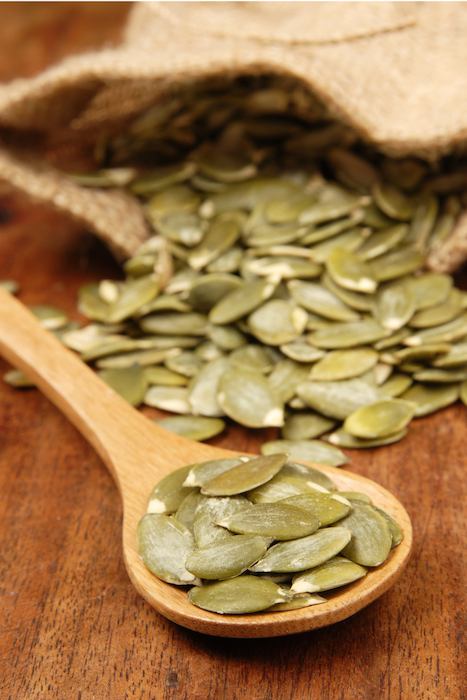
As you can see, there are many reasons to add pumpkin seeds to your diet. But how exactly do you do that?
Here are a few ideas:
– Add them to oatmeal or yogurt.
– Sprinkle them on top of salads.
– Make a trail mix with pumpkin seeds, dried fruit, and nuts.
– Use them in place of croutons in your soup.
– Bake them into bread or muffins.
– Or eat them as-is!
Another amazing way to get the health benefits of pumpkin seeds is through Complete Biotin Plus.
EverBella’s Complete Biotin Plus contains pumpkin seed oil, giving you a concentrated dose of pumpkin seed goodness.
To see what else Complete Biotin Plus contains, along with how these ingredients can benefit YOUR health…
Which Is Healthier: Coffee Or Tea?
When it comes to coffee or tea, there’s a lot of debate about which is the healthier drink. Some people swear by their morning cup of joe, while others can’t start the day without a hot cup of tea.
Which do you choose?
And do you know which is really better for you?
Let’s take a look at the facts!
What are the benefits of drinking coffee or tea?
When it comes to coffee or tea, both drinks offer a variety of health benefits.
Coffee is known for its high caffeine content, which can give you an energy boost and help you stay alert throughout the day. Tea is packed with antioxidants, which can help protect your body against disease.
Both coffee and tea also contain essential nutrients like potassium and magnesium that your body needs to function properly.
Tea
Black tea is rich in antioxidants, which can help protect your cells from damage. Regular consumption of black tea has been linked with lower risks of heart disease and stroke. In addition, black tea can help prevent cavities by reducing the growth of bacteria in the mouth. And if you’re looking to lose weight, black tea may be able to help. One study found that those who drank four cups of black tea a day for six weeks lost more weight than those who didn’t drink any tea at all.
Coffee
There are many health benefits to drinking coffee. For one, coffee is a good source of antioxidants. Coffee also contains caffeine, which can improve mental alertness and memory. In addition, coffee has been shown to reduce the risk of several chronic diseases, including heart disease, stroke, and type 2 diabetes. So if you’re looking for a healthy way to start your day, reach for a cup of coffee. You may be doing your body a favor.
Bottom line
So, which is the healthier drink?
Both coffee and tea have their own unique benefits, so it really depends on your individual needs. But it’s good to know that no matter which of these two you choose to put in your cup, it’s serving your health!
Does coffee or tea contain more caffeine?
Caffeine is a naturally occurring compound that can be found in both coffee and tea. It’s responsible for the stimulating effects of these drinks, and it can be anywhere from mild to dangerous, depending on how much you consume.
Tea contains significantly less caffeine than coffee. A typical cup of black tea has about half the caffeine as a cup of coffee. This means that tea won’t give you the same energy boost as coffee, but it’s less likely to cause side effects like jitters and anxiety.
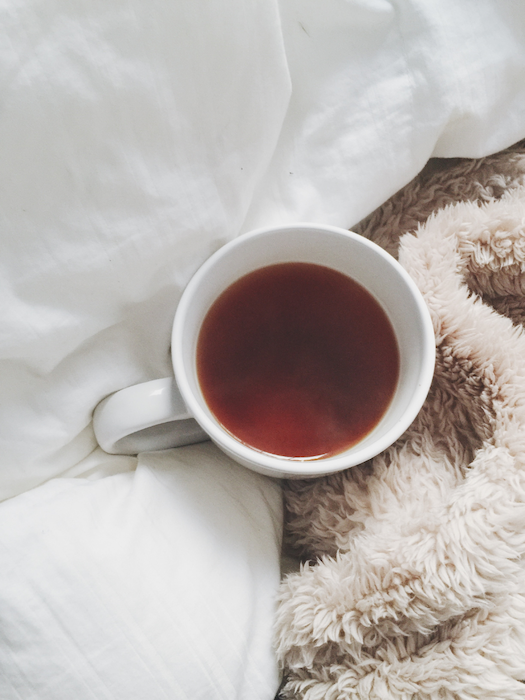
Tea
The amount of caffeine in black tea can vary quite a bit depending on how it is brewed. For example, if you brew your black tea using boiling water, you’ll end up with a cup of tea that contains more caffeine than if you had brewed it using cooler water. In general, though, most cups of black teas will contain between 30 and 60 milligrams of caffeine – which is still less than what you’ll find in a cup of coffee.
Tea also contains an antioxidant called L-theanine, which stimulates the brain, while also promoting relaxation. This counters the jittery effect that coffee can bring, which is why tea can bring a more soothing energy boost then coffee.
So if you’re looking for a slightly caffeinated pick-me-up, black tea is a great choice. Just be sure to experiment with different brewing methods to find the perfect cup for your taste buds.
Coffee
Although the exact amount of caffeine varies depending on the type of coffee bean and the brewing method, a typical cup of coffee contains around 95 mg of caffeine. That’s about three times as much as a can of cola.
Caffeine is a stimulant that can have some positive effects, including increased alertness and improved cognitive function. However, it can also cause jitteriness, anxiety, and insomnia. For most people, moderate caffeine consumption is safe. However, pregnant women and people with certain medical conditions should limit their intake. So how much caffeine is in your cup of coffee? It depends on a number of factors, but you can be sure that it packs a punch!
Bottom line
Caffeine is a stimulant, which means it can improve mental alertness and memory. It can also help to reduce the risk of chronic diseases like heart disease, stroke, and type-II diabetes.
However, it can also bring about feelings of anxiety, jitters, while keeping you up at night. If you’re deciding between tea and coffee, it really depends on what kind of energy kick you’re looking for!
Which contains more antioxidants?
Antioxidants are important for many reasons. They help to protect cells from damage, neutralize free radicals, and reduce inflammation. As a result, antioxidants play a key role in maintaining health and preventing disease.
There are many different kinds of antioxidants, and they can be found in a variety of foods – like tea and coffee.
But does one contain more than the other?
Tea
There are many different types of antioxidants, but the ones found in black tea are some of the most beneficial.
The main antioxidant in black tea is called catechin, which is known for its ability to protect cells from damage. Catechin is also a powerful anti-inflammatory agent, making it beneficial for conditions like arthritis and asthma. Other antioxidants found in black tea include quercetin and epigallocatechin gallate (EGCG). Quercetin is known for its ability to reduce allergies and boost immunity, while EGCG has been shown to have anti-cancer properties.
In short, black tea is packed with antioxidants that can offer various health benefits!
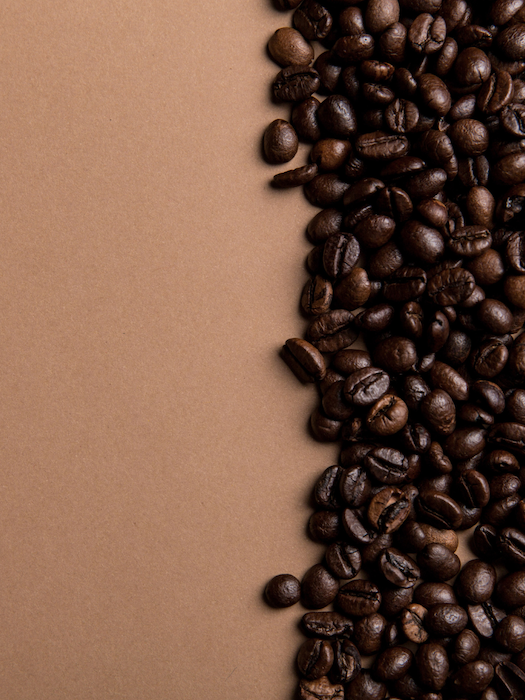
Coffee
When it comes to antioxidants, coffee is one of the most potent sources around. There are several different types of antioxidants found in coffee, including chlorogenic acid, quinic acid, and ferulic acid.
Chlorogenic acid is believed to be one of the most beneficial compounds in coffee, as it has been shown to help improve insulin sensitivity and reduce inflammation. Quinic acid, on the other hand, is a powerful antimicrobial agent that helps to protect coffee beans from mold and bacteria. Ferulic acid is another compound with potential health benefits, as it has been shown to reduce the risk of certain cancers.
Ultimately, there is no shortage of reasons to drink coffee for its antioxidant content.
Bottom line
Coffee and tea are two of the most popular beverages in the world, and both have been linked to a number of health benefits.
Both coffee and tea are rich in antioxidants, which are compounds that help protect the body from damage caused by free radicals.
However, there is some debate about which beverage contains more antioxidants. Some studies have found that coffee has more antioxidants than black tea, while other studies have found that black tea has more antioxidants than coffee.
Overall, it seems that both beverages are equally rich in antioxidants, so the best way to get the most antioxidants is to drink both coffee and tea regularly. Because remember, each beverage contains its own unique set of these compounds that benefit your health in different ways.
How do you make a perfect cup of coffee or tea?
Now that you know how good these drinks can be for you, you’re probably itching for a cup of your own!
There are many ways to make a perfect cup of coffee or tea, but the following tips will help you create the perfect drink every time:
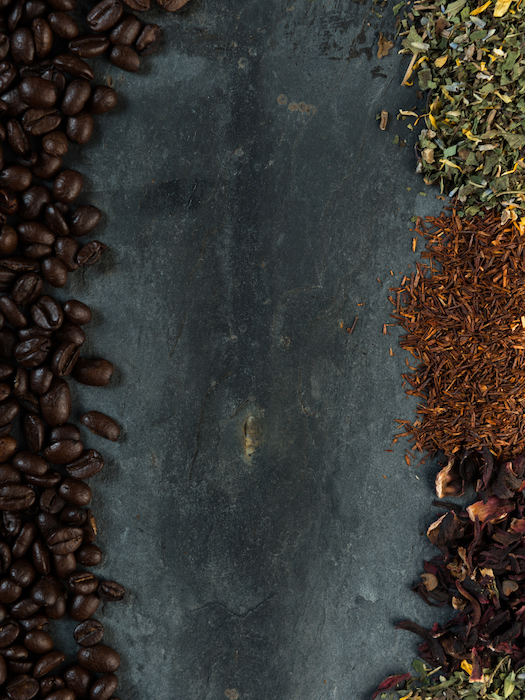
How to make a perfect cup of coffee:
- Start with fresh, cold water.
- Use a good quality coffee bean that has been roasted recently.
- Grind the coffee beans just before brewing.
How to make a perfect cup of tea:
- Start with fresh, cold water.
- Bring the water to a boil and then let it cool for about 30 seconds before pouring it over the tea leaves.
- Use one teaspoon of tea leaves per cup of water.
- Steep the tea for three to five minutes and then add milk or sugar to taste.
Give your tea and coffee a boost…
Personally, I like both tea and coffee.
But in the morning, I can’t go without a cup of joe. I love to drink it on my front porch while the sun comes up and the day begins.
But it’s not just coffee in my cup…
To give my coffee a sweet (but sugar-free) and delicious boost, I add Complete Collagen Plus into it! Not only does Complete Collagen Plus come in an irresistible caramel liquid (that people constantly write to me about and say they look forward to every day!) it provides your body with a healthy dose of collagen that it can actually take in and use.
If you want to see how Complete Collagen Plus helped me, along with what else this all-natural formula contains…
